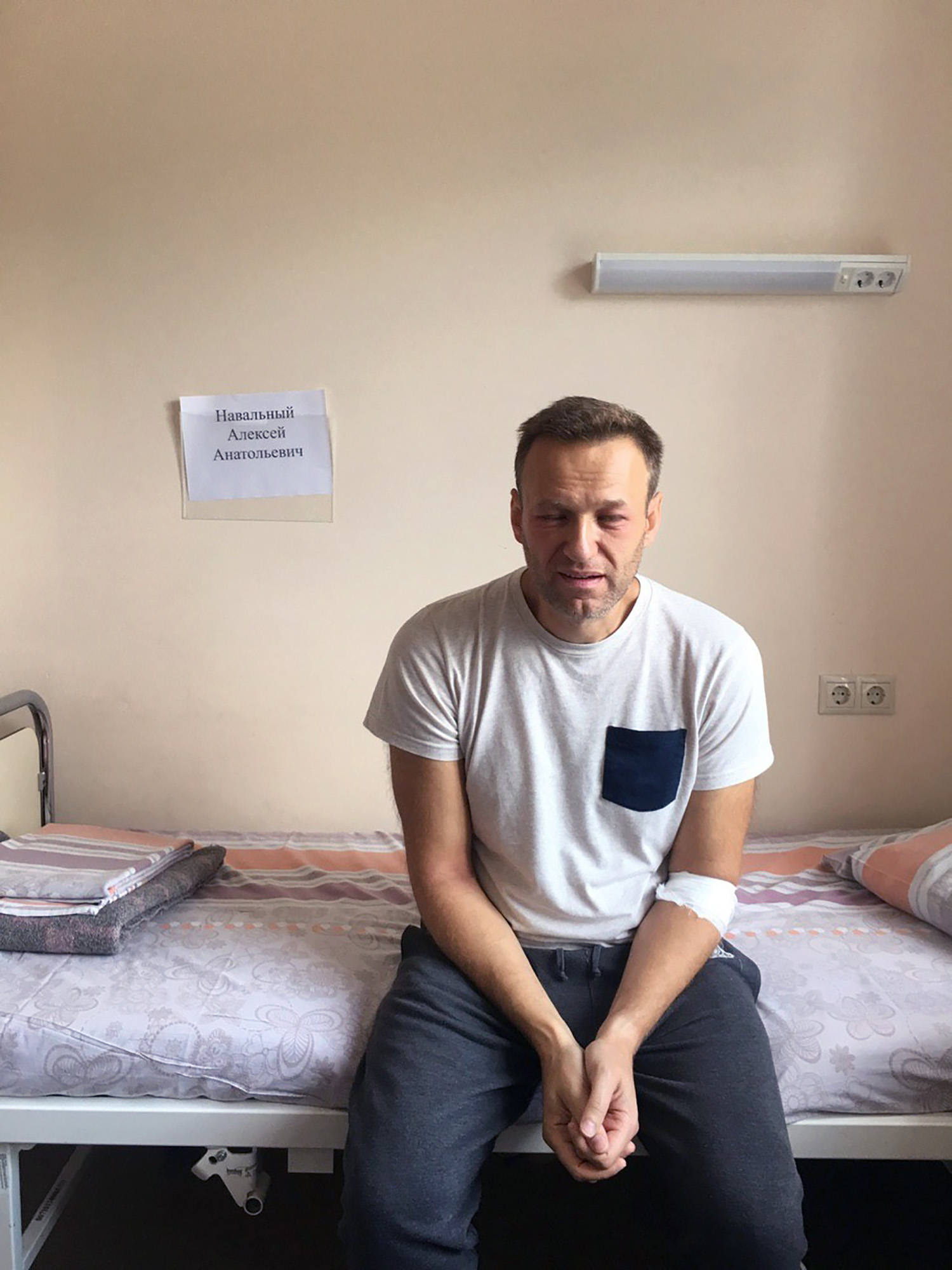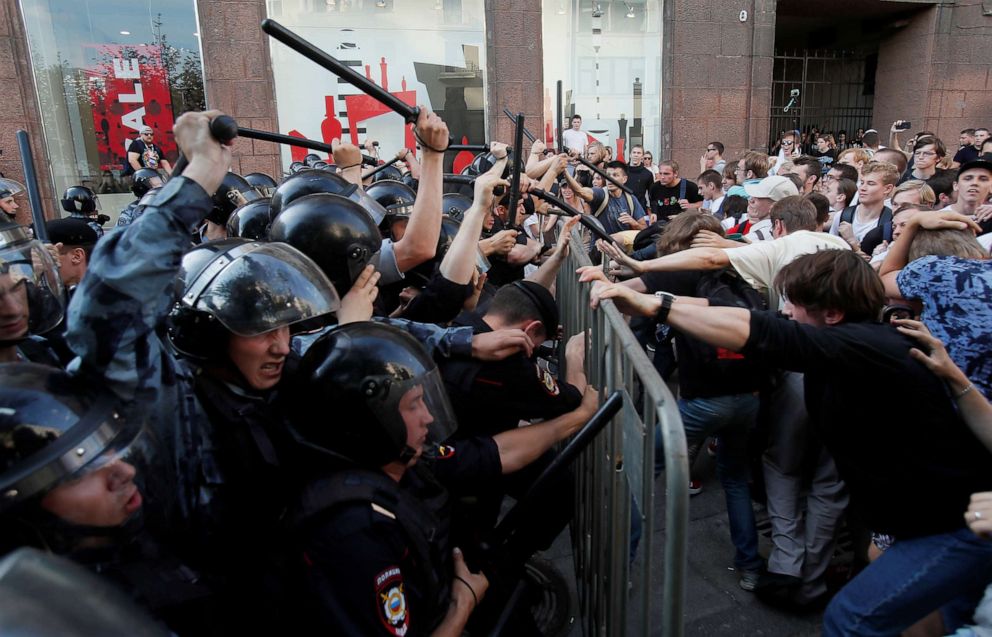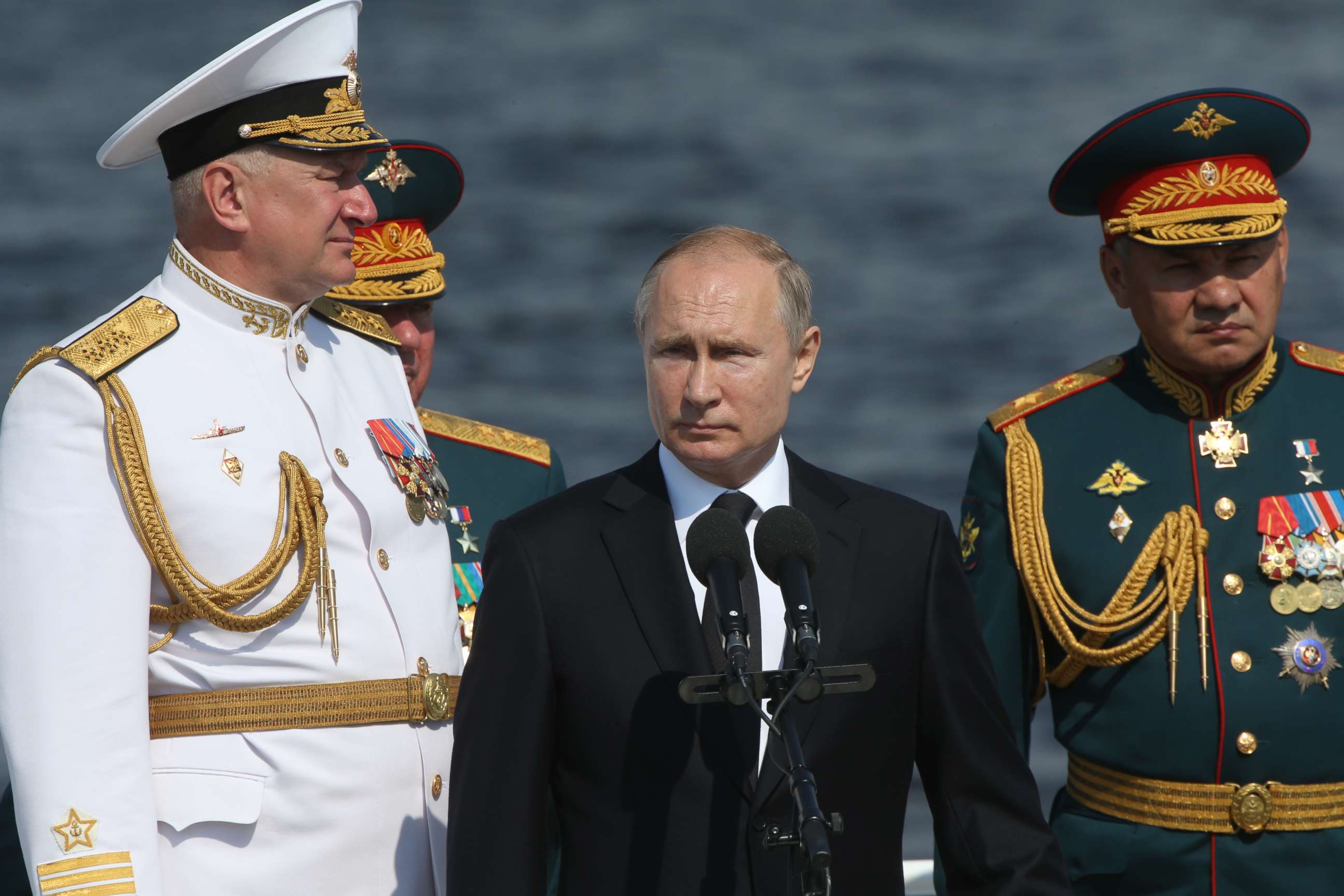Putin critic Alexey Navalny, following illness, suspects he may have been poisoned
Alexey Navalny's doctor has said Navalny was poisoned with a "chemical agent."
The Russian opposition leader, Alexey Navalny, has spoken out for the first time about his hospitalization this week, writing that he suspects he may have been poisoned.
Navalny was taken to the hospital on Sunday after suffering what authorities told his colleagues was a “severe allergic reaction” in a Moscow jail, where he is serving a 30-day sentence for organizing a protest against the government.
He was given the all-clear by hospital doctors after his symptoms responded to treatment, and was sent back to jail the next day over the strenuous objections of his personal doctor who has said she believes he was poisoned.

Writing in his blog late Monday night, Navalny described what happened to him and said he agreed it was possible he had become the latest in a series of Kremlin opponents to be poisoned over the years.
His symptoms began on Saturday, he wrote, when his cellmates noticed his neck was red and he felt unwell throughout the day. In the middle of the night he woke up with his “head, ears and neck burning.”
“I felt as though my head had been rubbed with fiberglass,” Navalny wrote. The next day, he said, his eye-lids were “the size of ping-pong balls.”
“Honestly speaking,” Navalny wrote, “the thought came to my head: 'Could they have poisoned me?'”
After he was given steroids in the hospital, the swelling subsided, leaving Navalny looking, in his words, “like a person who’s been drinking solidly for two months.”
Navalny’s illness comes amid a crackdown against the anti-Kremlin opposition, which saw Russian police arrest almost 1,400 people at a protest last Saturday.

In his blog post, Navalny allowed that it was still possible he had suffered a strange allergy -- but that there were many reasons to be suspicious. He had never suffered allergies in his life, he wrote, and he had not changed anything in his diet or routine.
Navalny, who is regularly jailed on protest charges, has spent many months in jails in recent years, and had even lived in the same cell on the same cot during another short detention two weeks earlier. His bedding was brought from home and none of his five cellmates had shown symptoms, he said.
There was a simple way to determine if there had been foul play, Navalny wrote: Review the security camera footage in his cell to see if anyone other than the detention center staff had entered it while he wasn’t present. He said he ruled out his guards’ involvement, since they were “shocked more” than him by his appearance.
Navalny’s doctor, Anastasia Vasilyeva, has said she is certain Navalny was poisoned with an “unknown chemical agent.”
Navalny has been diagnosed with "contact dermatitis," a relatively common rash provoked by irritants, but doctors have not established what caused it. Vasilyeva told reporters on Monday she believes whoever poisoned him wanted “to scare him.”
Navalny’s possible poisoning comes at a time of heightened activity among the opposition. The protest last Saturday was called by Navalny and other activists after authorities barred opposition candidates from taking part in the Moscow city council election this September.

The Kremlin has been demonstrating an increased intolerance for political opposition among Moscow’s liberal society, which has held relatively large demonstrations over the past two weekends. The last one was met with force by police, who rounded up hundreds of peaceful demonstrators and beat some with batons. Since then, Moscow courts have fined or given short jail sentences to hundreds of those arrested in rolling trials.
The opposition has called for another demonstration in Moscow this Saturday. It has rejected a request by the mayor’s office to hold the protest in a less central location, setting the stage for more arrests and possible clashes.
Many of the opposition’s key leaders have been jailed in the past week, either before or after Saturday’s protest. Mikhail Svetov, head of the Libertarian Party, was arrested on Tuesday outside the Moscow government’s offices immediately after he left negotiations on the protest site there, his party colleagues said.




